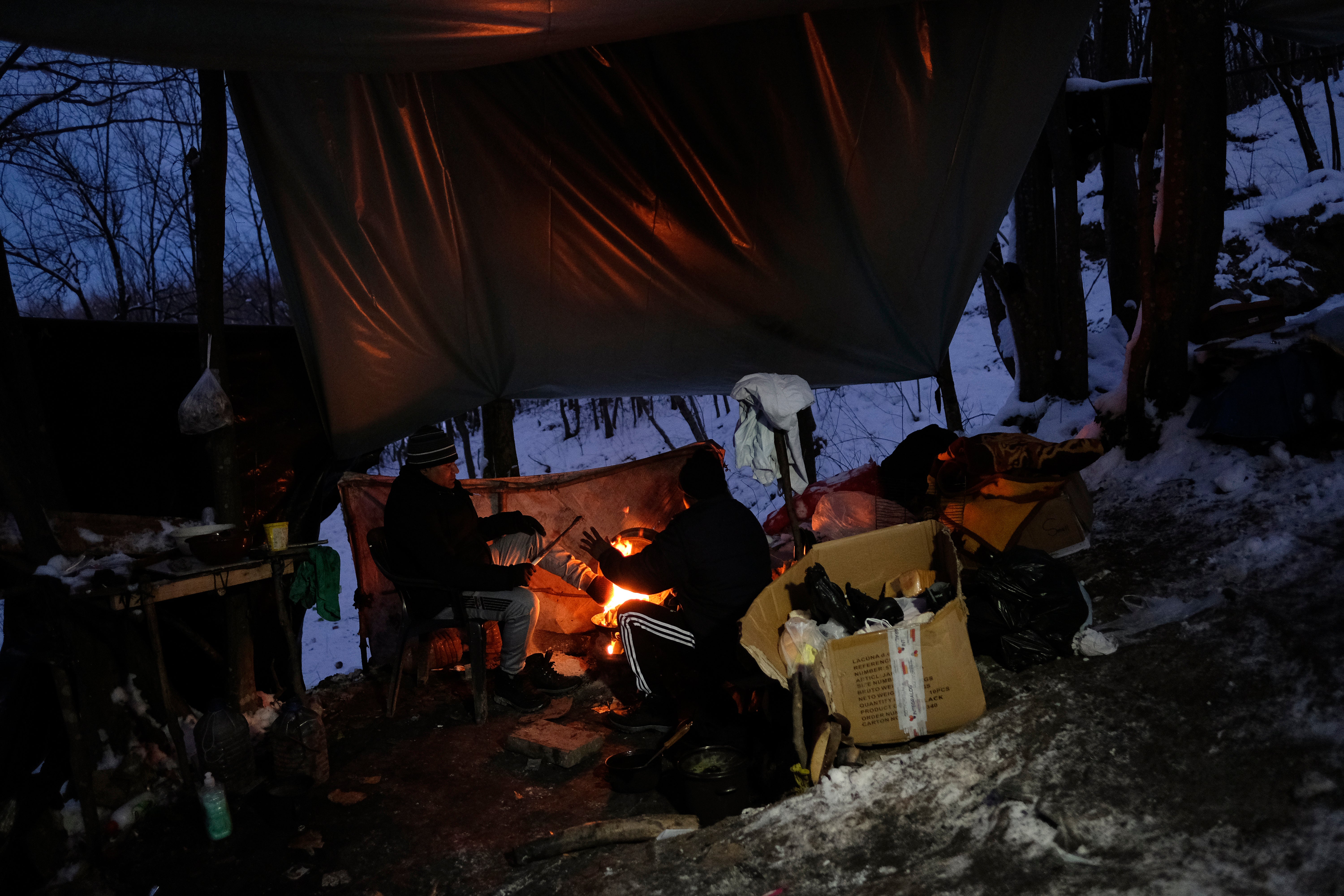Stuck in Bosnia, migrants sleeping rough face up to winter
Temperatures have dropped way below zero in Bosnia where hundreds of migrants and refugees, including entire families, are sleeping rough while trying to reach Western Europe

Your support helps us to tell the story
From reproductive rights to climate change to Big Tech, The Independent is on the ground when the story is developing. Whether it's investigating the financials of Elon Musk's pro-Trump PAC or producing our latest documentary, 'The A Word', which shines a light on the American women fighting for reproductive rights, we know how important it is to parse out the facts from the messaging.
At such a critical moment in US history, we need reporters on the ground. Your donation allows us to keep sending journalists to speak to both sides of the story.
The Independent is trusted by Americans across the entire political spectrum. And unlike many other quality news outlets, we choose not to lock Americans out of our reporting and analysis with paywalls. We believe quality journalism should be available to everyone, paid for by those who can afford it.
Your support makes all the difference.Temperatures have plummeted way below zero in Bosnia making life even more miserable for hundreds of migrants and refugees — including entire families with small children — sleeping rough while trying to reach Western Europe.
After days of snow earlier this month, a spell of extreme cold that hit the region this week has brought freezing days and nights for the people stranded in northwest Bosnia, near the border with European Union member Croatia.
Meteorologists in Bosnia and Croatia have warned their citizens not to stay out long during the cold spell, predicting that temperatures could drop to minus 15 degrees Celsius (5 Fahrenheit).
While Bosnian authorities, under international pressure, have improved conditions for several hundred people stuck in a burned-out camp, hundreds more are in makeshift tent camps and abandoned houses without heating or any facilities.
“Last night was very cold. We are suffering very much,” said Shahin, a mechanic from Bangladesh, who is staying in a small tent in a forest near the town of Velika Kladusa. “I (didn't) sleep last night.”
Migrants like Shahin have been sleeping rough for months while hoping to cross illegally into Croatia, sometimes making dozens of attempts while allegedly facing violence and pushbacks at the hands of Croatian border police.
The makeshift camp near Velika Kladusa consists of several small tents on frozen, uneven ground among trees. Some migrants wash outside in the cold in freezing temperatures, they light fires for warmth and have no toilets or electricity.
Shahin said there's no clean drinking water. “It is not safe, it is a very big risk for our health. ... Please help us,” he said.
Bosnia's often-chaotic response to Europe's migration crisis has drawn international criticism and warnings from humanitarian groups that both the Balkan country and the EU must find a durable solution.
Twenty-year-old journalism student Mohammad Khan from Afghanistan, who is staying with several dozen other migrants at a garbage-strewn abandoned factory near the town of Bihac, said he just wants a “safe” and “clean” life in Europe.
Inside the crumbling, communist-era factory, migrants could be seen lying wrapped tight in blankets or sleeping inside small tents. The windowless building offers little protection from the cold.
Most migrants in Bosnia flock to the northwestern corner of the country because it borders Croatia. Local authorities have said they are overwhelmed but most other Bosnian regions have refused to accept the migrants amid protests from residents.
A couple from Afghanistan with their four children aged between 18 months and 10 years, have found temporary shelter in an abandoned house in a village near the Croatian border.
The family cook on a wood-fueled stove, light candles after dark and use old furniture left behind in the house while waiting for a chance to cross the border. They told the AP they have tried 40 times to enter Croatia but have been sent back each time.
Mustafa, the father of the family who refused to give his surname for fear of reprisals, said it's been hard after failing so many times and having no help except occasional aid packages from humanitarian groups.
“Too (much) hard here, too much game,” Mustafa said, using a migrant term for attempts to illegally cross borders.